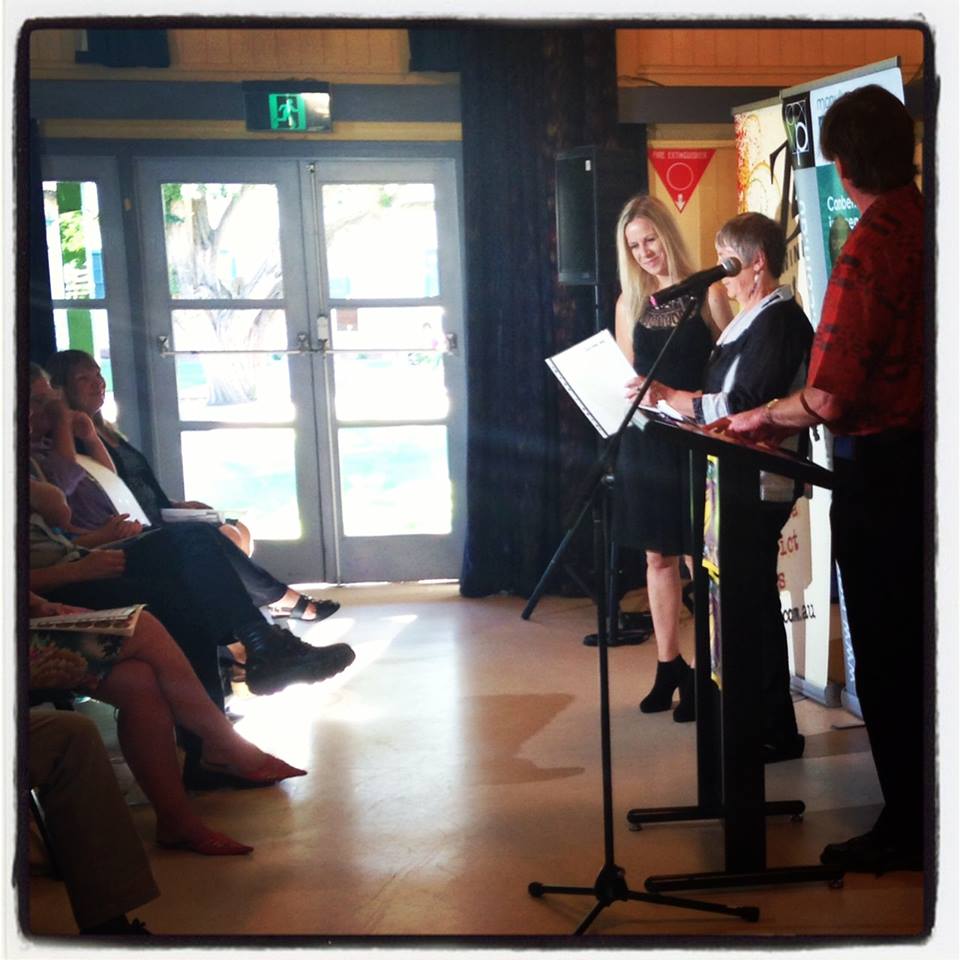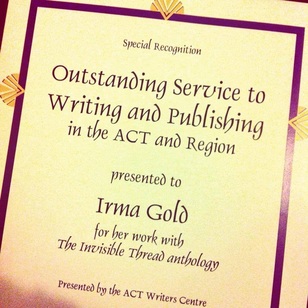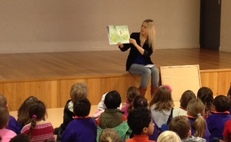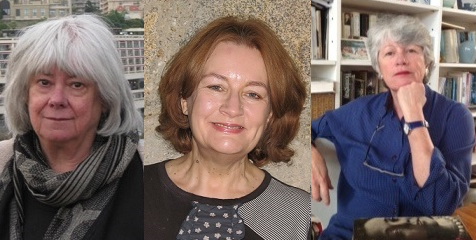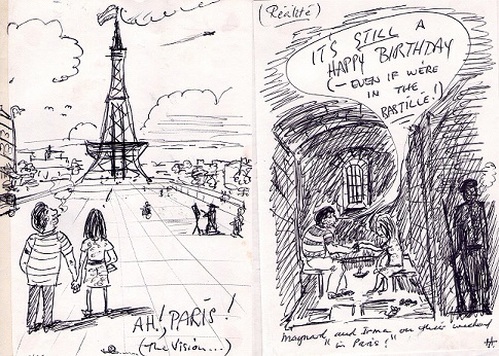ADELAIDE WRITERS’ WEEK, PART 1
I have always considered Adelaide Writers’ Week to be the Mecca of Australian literary festivals, and last week I made the pilgrimage for the first time. It didn’t disappoint.
Set in the Pioneer Women’s Memorial Gardens under marquees and shade sails, the outdoor setting lends the event a relaxed, convivial feel. Combined with perfect summer weather (I’m told previous years have seen temps in the forties but this year we were blessed with 32 degrees tops) and a stellar line-up of writers, I was in seventh heaven all week-long.
The sessions I found most invigorating were the panels (as opposed to those where an individual author was interviewed about their recent release). By their very nature the panels allowed for a broader discussion of writing, publishing and converging thematic concerns.
I particularly enjoyed Hannah Kent and Elizabeth Gilbert in conversation with Kalinda Ashton. This proved to be an interesting discussion about turning history into fiction. Gilbert talked about the four years of research for The Signature of All Things, saying, ‘You know 20 times more than you reveal.’ She kept boxes and boxes of index cards but said she then needed ‘to have the confidence to forget’. And I loved this analogy: ‘Because I’d prepared so much it was like riding a bike downhill.’
Read More »ADELAIDE WRITERS’ WEEK, PART 1
Kent spoke about knowing when to stop researching and get on with the business of writing: ‘When I realised I didn’t need to refer to my notes I was at the point of saturation…That’s when I knew I had granted myself the license to write fiction.’ Kent’s Burial Rites is a book that warrants the clichéd but entirely true ‘unputdownable’ endorsement, and Gilbert’s The Signature of All Things is now on my ever expanding To Read List.

I am always fascinated by other writers’ processes and Louise Doughty (who was generally marvellous) spoke most candidly about hers. Doughty explained that she doesn’t write sequentially. Every morning she gets up and writes whatever scene comes to her. ‘It gets to the point that I have a mass of mess,’ she said. ‘It looks not so much like a novel that’s being written, but a novel that’s being regurgitated. At that point I panic…and go and have a little cry.’ However, Doughty explained that she quickly gets over herself and begins spreading everything she’s written across the floor. She plots out what happens sequentially and then puts scenes in order. Once the paper trail is complete, she cuts and pastes on her computer accordingly. Doughty recounted how she arrived at Adelaide airport with her latest novel in her handbag. She had already ordered the sheaf of papers but not made the corresponding changes on her computer. Consequently she was clinging onto her handbag!
I also liked the idea of Fiona McFarlane’s document with its clever title, ‘The Moves’ (interviewer Kalinda Ashton — incidentally, an author whose work I also love — said she might have to appropriate this title, and I may too!). ‘The Moves’ was written entirely in red pen (‘to frighten myself,’ McFarlane said) and outlined every plot point. McFarlane used this document to work through ‘many, many drafts to get it [her novel, The Night Guest] right’.
Incidentally, the session with Doughty and McFarlane was a cracker, delving into issues of trust, both within their novels and the reading process itself. Doughty expounded on the idea that we all experience a novel differently, according to our experiences in life and where we are at that particular moment in time. ‘Novels are mirrors in which we see ourselves reflected,’ she said. Doughty illustrated this point by talking about a male friend’s reaction to Apple Tree Yard. He said that for him the book reinforced that ‘it’s possible to love two people at the same time’. As the only person to take this ‘message’ away from her book, Doughty thought, ‘Should I take him out for a drink and find out what’s going on in his life?’ We take from a novel what suits our narrative about our own lives.
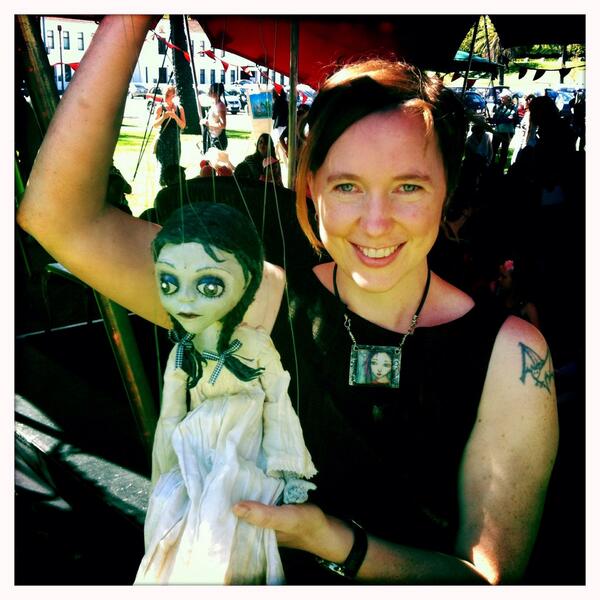
Let’s end this post with a bit of fun (I can’t cram everything in here, so Part 2 and 3 will be along shortly). Hanging out in the tinsel-covered kids’ tent was a blast. Sadly, my children were back in Canberra but I joined the merry chaos regardless. Mem Fox is an absolute pro and immediately got the audience laughing. I thoroughly enjoyed watching her in action (kissing the illustrator’s name on every book she read).
Seeing Andy Griffiths talk I wished Master Seven could have been there. He would have been starry-eyed. And it was really something to see the tent overflowing with boys all there to talk books. Many boys are reluctant readers, but Griffiths makes all the right moves to get them hooked. There was lots of laughter and lots of ‘gross’ stories. My favourite moment: when Griffiths revealed that Jill from theTreehouse books is his wife in real life. A noise along the lines of ‘ewwwww’ rolled through the tent. Apparently this was categorised as ‘gross’ humour!
I also got to meet one of my childrens’ favourite authors, Asphyxia. They have exchanged letters and emails, and Master Seven long ago converted our cubby house into a Grimstones-inspired apothecary. He is still in there most days mixing up new potions, a very real example of the way books can fire the imagination.
Writers’ Week, Part 2 will delve into darker territory, namely the commercial side of the industry and how it is shaping publishing lists.

